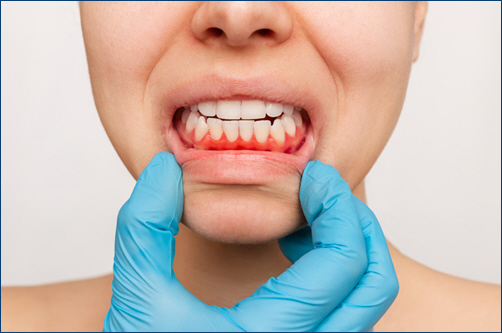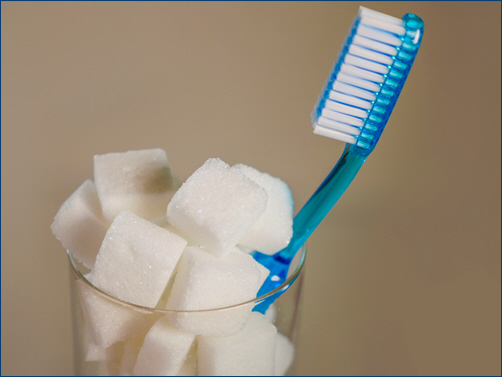The Risks of Skipping Professional Dental Cleanings
Skipping professional dental cleanings increases the risk of cavities, gum disease, and tooth loss. Plaque and tartar buildup create a breeding ground for bacteria, leading to inflammation and decay. Poor oral hygiene weakens enamel and increases sensitivity to hot and cold foods. Untreated plaque causes gum recession, bleeding, and infection. Missing regular cleanings allows minor dental issues to worsen, leading to costly and complex treatments. Professional cleanings remove plaque and tartar, protecting teeth and gums from damage. Regular dental visits strengthen enamel and improve gum health. Understanding the risks of skipping dental cleanings encourages better oral care. Let’s explore why regular professional cleanings are essential for long-term dental health.
Increased Plaque and Tartar Buildup
 Skipping cleanings allows plaque to harden into tartar. Plaque forms when bacteria mix with food particles and saliva. Brushing and flossing remove plaque, but not all of it. Tartar forms when plaque remains on teeth for more than 24 hours. Hardened tartar creates rough surfaces that trap more plaque and bacteria. Tartar buildup increases the risk of cavities and gum inflammation. Dentists use specialized tools to remove tartar during cleanings. Professional cleaning smooths tooth surfaces, making it harder for plaque to stick. Removing plaque and tartar reduces tooth decay and gum disease risk. Clean teeth improve overall breath freshness and comfort.
Skipping cleanings allows plaque to harden into tartar. Plaque forms when bacteria mix with food particles and saliva. Brushing and flossing remove plaque, but not all of it. Tartar forms when plaque remains on teeth for more than 24 hours. Hardened tartar creates rough surfaces that trap more plaque and bacteria. Tartar buildup increases the risk of cavities and gum inflammation. Dentists use specialized tools to remove tartar during cleanings. Professional cleaning smooths tooth surfaces, making it harder for plaque to stick. Removing plaque and tartar reduces tooth decay and gum disease risk. Clean teeth improve overall breath freshness and comfort.
Higher Risk of Cavities
Plaque and tartar contain bacteria that produce acid, which weakens enamel. Acid erosion creates small holes in the enamel, leading to cavities. Cavities cause sensitivity to hot, cold, and sugary foods. Untreated cavities deepen over time, exposing the dentin layer and increasing pain. Severe cavities reach the tooth pulp, leading to infection and possible tooth loss. Professional cleanings remove plaque and bacteria before they damage enamel. Fluoride treatments during cleanings strengthen enamel and reduce cavity formation. Early detection of cavities allows for easier and less invasive treatment. Regular cleanings prevent cavities and improve overall tooth strength. Stronger teeth increase chewing comfort and overall oral health.
Increased Gum Disease Risk
Skipping cleanings increases the risk of gingivitis and periodontitis. Plaque buildup irritates the gumline, causing redness, swelling, and bleeding. Untreated gingivitis progresses to periodontitis, which damages gum tissue and bone structure. Deep gum pockets form, trapping bacteria and worsening the infection. Gum recession exposes tooth roots, increasing sensitivity and decay risk. Professional cleanings remove plaque and tartar from the gumline, preventing inflammation. Deep cleaning (scaling and root planing) treats early-stage gum disease and reduces pocket depth. Healthy gums improve tooth stability and reduce the risk of tooth loss. Regular cleanings prevent gum disease and support overall dental health. Strong gums protect teeth and improve bite strength.
Bad Breath and Stained Teeth
Plaque and bacteria trapped between teeth cause bad breath (halitosis). Food particles and bacteria produce sulfur compounds that create a foul odor. Tartar buildup stains teeth and creates a yellow or brown appearance. Coffee, tea, and smoking worsen staining and plaque buildup. Brushing and flossing only remove surface stains and plaque. Professional cleanings remove deep stains and polish tooth surfaces. Polished teeth reflect light better and create a brighter smile. Clean teeth reduce bacteria and improve breath freshness. Professional cleanings improve overall smile appearance and breath quality. Clean teeth and fresh breath increase social confidence and comfort.
Tooth Loss from Untreated Decay and Gum Disease
Skipping cleanings allows cavities and gum disease to worsen. Severe decay weakens tooth structure, increasing the risk of fractures and tooth loss. Periodontitis damages the bone structure, causing teeth to loosen and shift. Untreated gum disease increases inflammation and reduces tooth stability. Professional cleanings strengthen tooth attachment and reduce inflammation. Early detection of tooth damage prevents extraction and complex dental work. Dentists recommend deep cleaning and fluoride treatments to strengthen enamel and gum health. Regular cleanings protect teeth from long-term damage and loss. Stronger teeth and better gum attachment improve overall bite comfort. Preventing tooth loss improves chewing strength and smile confidence.
Increased Risk of Systemic Health Issues
Poor oral health increases the risk of heart disease, diabetes, and respiratory problems. Bacteria from untreated gum disease enter the bloodstream, causing inflammation in other parts of the body. Periodontitis increases C-reactive protein levels, which contribute to heart strain and clotting. Bacteria also worsen blood sugar control in diabetic patients. Poor oral health increases the risk of pneumonia and respiratory infections. Professional cleanings reduce bacterial levels and improve gum health. Lower inflammation levels improve overall heart and immune function. Better gum health supports better overall health and reduced disease risk. Healthy gums and teeth increase long-term wellness and comfort.
Higher Dental Costs from Delayed Treatment
Skipping cleanings leads to more complex and expensive dental treatments. Untreated cavities require fillings, crowns, or root canals. Severe gum disease requires scaling, root planing, and gum grafting. Tooth loss leads to expensive tooth replacements, including implants and bridges. Professional cleanings prevent minor issues from becoming serious problems. Early treatment reduces dental costs and recovery time. Regular cleanings maintain gum health and prevent plaque buildup. Preventive care increases tooth longevity and reduces dental expenses. Stronger teeth and healthier gums reduce the need for restorative work. Investing in regular cleanings saves money and improves dental comfort.
Skipping professional dental cleanings increases plaque buildup, cavities, and gum disease risk. Plaque and tartar weaken enamel and increase sensitivity. Untreated gum disease causes inflammation, recession, and tooth loss. Professional cleanings remove plaque, strengthen enamel, and improve gum health. Cleanings also reduce bad breath and improve tooth color. Early detection of cavities and gum issues prevents complex and costly treatments. Better gum health reduces the risk of heart disease and diabetes complications. Investing in regular dental cleanings protects teeth and reduces long-term dental costs. Stronger teeth and healthier gums create a confident, brighter smile.



 Regular Dental Checkups
Regular Dental Checkups
 Managing Oral Health Risks with Diabetes
Managing Oral Health Risks with Diabetes
 Your toothbrush is bloody.
Your toothbrush is bloody.